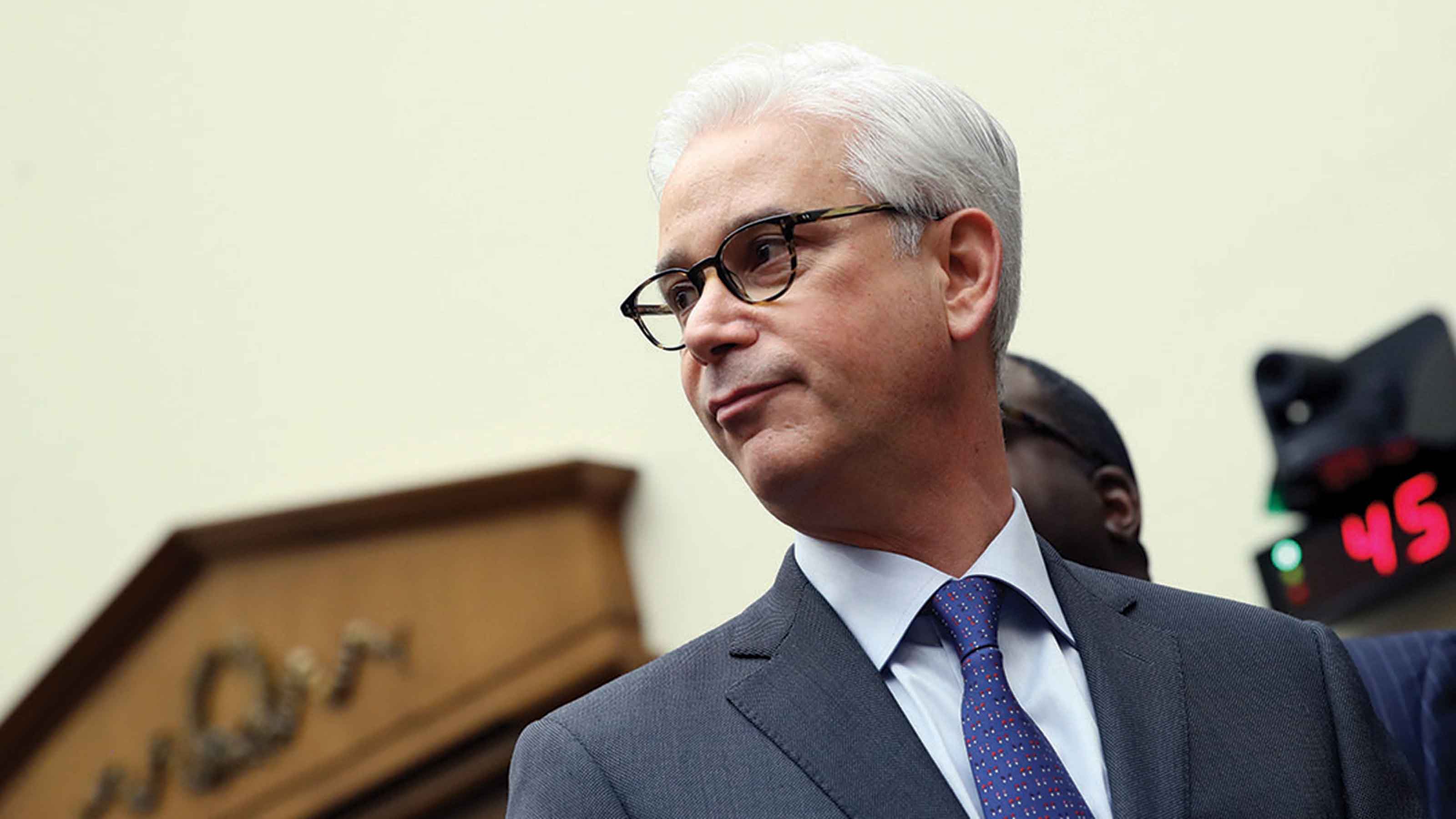Obama Extends Helping Hand to Businesses
As the 2012 election looms, the White House tries to mend fences by delaying government rules that might lead to layoffs and cut investment.

Profit and prosper with the best of Kiplinger's advice on investing, taxes, retirement, personal finance and much more. Delivered daily. Enter your email in the box and click Sign Me Up.
You are now subscribed
Your newsletter sign-up was successful
Want to add more newsletters?

Delivered daily
Kiplinger Today
Profit and prosper with the best of Kiplinger's advice on investing, taxes, retirement, personal finance and much more delivered daily. Smart money moves start here.

Sent five days a week
Kiplinger A Step Ahead
Get practical help to make better financial decisions in your everyday life, from spending to savings on top deals.

Delivered daily
Kiplinger Closing Bell
Get today's biggest financial and investing headlines delivered to your inbox every day the U.S. stock market is open.

Sent twice a week
Kiplinger Adviser Intel
Financial pros across the country share best practices and fresh tactics to preserve and grow your wealth.

Delivered weekly
Kiplinger Tax Tips
Trim your federal and state tax bills with practical tax-planning and tax-cutting strategies.

Sent twice a week
Kiplinger Retirement Tips
Your twice-a-week guide to planning and enjoying a financially secure and richly rewarding retirement

Sent bimonthly.
Kiplinger Adviser Angle
Insights for advisers, wealth managers and other financial professionals.

Sent twice a week
Kiplinger Investing Weekly
Your twice-a-week roundup of promising stocks, funds, companies and industries you should consider, ones you should avoid, and why.

Sent weekly for six weeks
Kiplinger Invest for Retirement
Your step-by-step six-part series on how to invest for retirement, from devising a successful strategy to exactly which investments to choose.
The business sector can expect some regulatory relief from the Obama administration this year and next. But the effort will be short-lived.
Some regulations already in the pipeline for approval will be delayed, allowing time for employer input and for additional analysis of costs and the potential impact. And some rules already on the books will be reexamined. Government agencies have until the end of July to give the Office of Management and Budget a list of regulations in need of streamlining.
Next year’s election is behind the review. The White House is concerned about the effect of burdensome, costly rules on hiring and business investment as President Obama gears up his campaign for a second term. In addition to the prospect of boosting employment, the move to dial back on some rules will help the president mend political fences.
From just $107.88 $24.99 for Kiplinger Personal Finance
Become a smarter, better informed investor. Subscribe from just $107.88 $24.99, plus get up to 4 Special Issues

Sign up for Kiplinger’s Free Newsletters
Profit and prosper with the best of expert advice on investing, taxes, retirement, personal finance and more - straight to your e-mail.
Profit and prosper with the best of expert advice - straight to your e-mail.
Here are some of the regulations being slowed:
● A rule requiring most derivatives to be traded on exchanges will be postponed until Dec. 31 or later. It was slated to take effect in mid-July, as part of the broad financial overhaul package that Congress approved last year.
● A plan to prevent federally insured banks from proprietary trading. The Office of the Comptroller of the Currency is pushing to give banks wider latitude in managing their assets, though opponents say such a move would render the rule meaningless.
● Tougher clean air rules for industrial and commercial boilers. Retrofitting or shutting down steam generators to meet new air quality standards would cost billions of dollars and would put jobs at risk.
● Tighter limits on mountaintop mining for coal. The rules, if enacted, would eliminate many coal mining jobs in West Virginia, a state that Obama lost in 2008.
● New controls on the disposal of coal ash from power plants. If implemented, utilities would face higher operating costs to truck the ash to specially designed facilities.
The administration will also scale back a rule making it easier for individuals to appeal when insurance companies deny coverage of health care claims and will give employers a bigger say in other health rules that are wending their way through the approval process.
But the pro-business bent won’t last. Most of the regulations that are being slow-walked through the bureaucracy eventually will be implemented if Obama wins another four-year stay in the White House.
And a number of other rules that businesses oppose won’t be delayed, especially those that are viewed as worker-friendly. Among them: Workplace injury standards, overtime pay rules and limits on the number of hours that long-haul truckers must rest between shifts.
The National Labor Relations Board will also remain firmly on the side of workers. Organized labor is still a key constituency for Obama, and he must throw them a few bones before November 2012. There is little likelihood that union members will defect in large numbers to whichever Republican runs against Obama. But many of them could stay home on Election Day, which would hurt the president’s chances of becoming the country’s third consecutive two-term president.
Profit and prosper with the best of Kiplinger's advice on investing, taxes, retirement, personal finance and much more. Delivered daily. Enter your email in the box and click Sign Me Up.

-
 5 Vince Lombardi Quotes Retirees Should Live By
5 Vince Lombardi Quotes Retirees Should Live ByThe iconic football coach's philosophy can help retirees win at the game of life.
-
 The $200,000 Olympic 'Pension' is a Retirement Game-Changer for Team USA
The $200,000 Olympic 'Pension' is a Retirement Game-Changer for Team USAThe donation by financier Ross Stevens is meant to be a "retirement program" for Team USA Olympic and Paralympic athletes.
-
 10 Cheapest Places to Live in Colorado
10 Cheapest Places to Live in ColoradoProperty Tax Looking for a cozy cabin near the slopes? These Colorado counties combine reasonable house prices with the state's lowest property tax bills.
-
 Airbnb Host Tells What It's Like
Airbnb Host Tells What It's LikeBusiness Costs & Regulation This Denver pharmacist began booking her ski condo a few months after the pandemic hit.
-
 Tough Times for a Family Business
Tough Times for a Family BusinessBusiness Costs & Regulation His dry-cleaning operation was rocked by the pandemic, but he is staying optimistic.
-
 IRS Gives Truckers a Tax Break in Response to the Colonial Pipeline Shutdown
IRS Gives Truckers a Tax Break in Response to the Colonial Pipeline ShutdownTax Breaks The tax penalty for using dyed diesel fuel for highway use is temporarily suspended.
-
 Reliving a Harlem Renaissance
Reliving a Harlem RenaissanceBusiness Costs & Regulation After a tough winter, two sisters look forward to reviving their restaurant’s business.
-
 Add a VPN to Surf the Internet Safely
Add a VPN to Surf the Internet SafelyTechnology To help you fight identity theft, consider adding a VPN.
-
 Stephanie Creary: Making the Case for Diversity on Corporate Boards
Stephanie Creary: Making the Case for Diversity on Corporate BoardsBusiness Costs & Regulation Adding underrepresented voices can improve a company’s bottom line.
-
 Kiplinger's 2020 Election Forecast
Kiplinger's 2020 Election ForecastPolitics For nearly a century, The Kiplinger Letter has forecasted the outcome of presidential elections to keep readers informed of what's coming and what it means for them. Here's our call for 2020.
-
 How We Lose When We Overlook Black Talent
How We Lose When We Overlook Black TalentBusiness Executives Comments from Wells Fargo CEO Charles Scharf (pictured) reflect a culture that tramples on clients’ trust and limits opportunities for people of color.